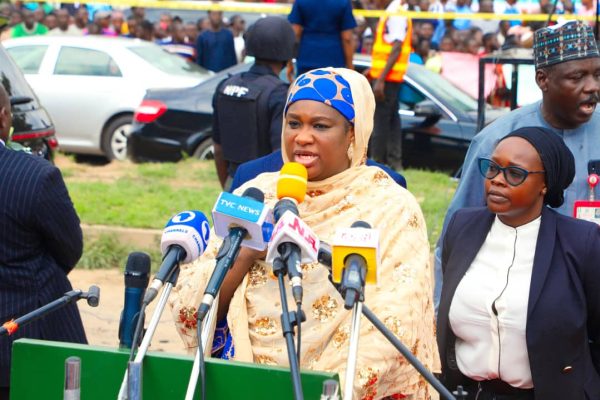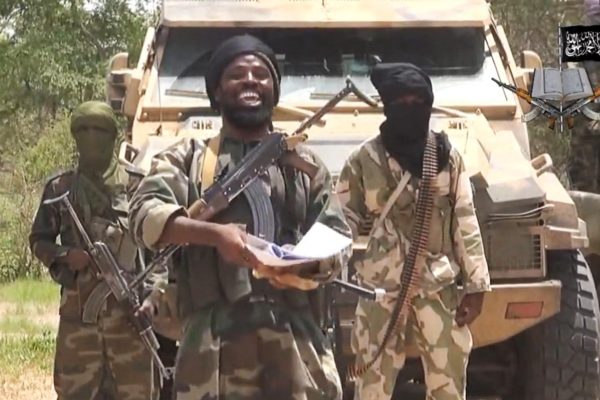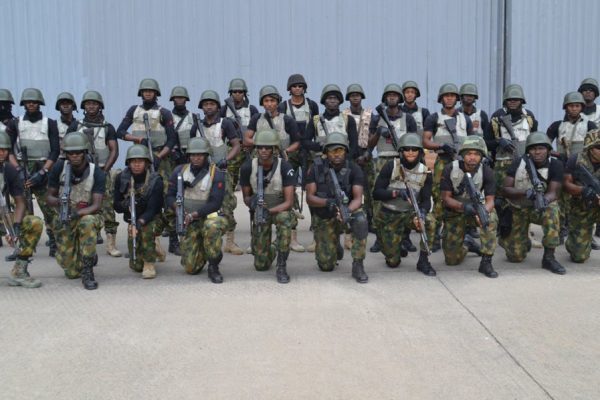The Northern Youths Council of Nigeria (NYCN) in August 2021 gave President Muhammadu Buhari‘s government a 14-day ultimatum to publish the names of those in his administration said to be sponsoring the insurgent group Boko Haram and other acts of terrorism in the country. The request came after allegations by a retired Military Intelligence expert, Navy Commodore Kunle Olawunmi (retired), that the federal government was fully aware of the identities of those financing terror in the country.
NYCN, in a statement by its President, Isah Abubakar, warned that failure to release the sponsors’ names will leave the group with no other choice than to make the Buhari government ‘face the consequences.’
Press the playback button to 2012, a list comprising names of suspected backers of Boko Haram was reportedly prepared by the federal government. Top security chiefs compiled the list at a meeting on ending the ceaseless attacks unleashed by the sect.
The security chiefs were said to have worked on an intelligence report highlighting that “some top politicians are financially backing up the Islamic sect to de-stabilise the present administration.” One security official disclosed that the decision to compile the list was born out of the belief that the anti-terrorism battle could be won sooner than expected if people linked with violence were exposed.
Back in 2020, six Nigerians were jailed by the government of the United Arab Emirates for funding Boko Haram. The convicts were initially tried and convicted in 2019, following their arrest in 2017. The court in Abu Dhabi sentenced Surajo Abubakar Muhammad and Saleh Yusuf Adamu to life in prison. Ibrahim Ali Alhassan, AbdurRahman Ado Musa, Bashir Ali Yusuf and Muhammad Ibrahim Isa were each given a ten-year sentence.
The court judgement said that between 2015 and 2016, the accused transferred $782,000 from Dubai to Nigeria to benefit Boko Haram even as associates defended their actions, saying there was nothing criminal about the transaction.
In 2021, another set of six was placed on the terror list by authorities of the United Arab Emirates. The development followed the UAE cabinet resolution No 83 of 2021, designating 38 individuals and 15 entities supporting and financing terrorism in the country.
The six Nigerians are Abdurrahaman Musa, Salihu Yusuf Adamu, Bashir Ali Yusuf, Muhammed Ibrahim Isa, Ibrahim Ali Alhassan, and Surajo Abubakar Muhammad.
Following that conviction, the attorney-general of the federation (AGF), Abubakar Malami, in a statement said the government cannot name and shame suspected financiers of terrorism before they are tried and convicted.
“Naming and shaming of suspects is not embarked upon as a policy by the federal government out of sheer respect the constitutional rights of Nigerians relating to presumption of innocence,” the statement read.
“It is a product of constitutionalism and the law. It is rooted in the law and the names of the suspects will accordingly be made public at the point of judicial arraignment while the. Trials are judicial processes and not about media sensations.
“Naming and shaming in the Nigerian context must be rooted in constitutionalism. We must strike a balance between constitutional presumption of innocence and evidential proof of reasonable ground for suspicion in making disclosures associated with terrorism funding and financing.”
The AGF added that out of over 1000 Boko Haram case files received by the department of public prosecution, “285 have been filed before the federal high court based on prima facie cases of terrorism against them”.
Meanwhile, Abubakar gave assurance that sponsors of terrorists that have been identified will be prosecuted.
Short background of consequences of the conflict
In 2017, The United Nations Development Programmes (UNDP) said about 1.9 million people in the North-Eastern part of the country urgently needed recovery support, food, and shelter.
Country Director, UNDP in Nigeria, Samuel Bwalya said, “The insurgence just worsened the situation, resulting in mass suffering among the people, especially women and youths.
“From our assessment, about 1.9 million people in the region, representing over 250,000 households, are in urgent need of early recovery support, including shelter, food, livelihood, social infrastructure, public security, among others.
“It is important to note that currently, over 80 percent of households affected by the insurgence spend more than they earn, and 30 percent of households are economically inactive.
By the end of 2020, data showed that nearly 350,000 people have been killed, due to terrorism. The toll, given by the UNDP in a new study on the war and its impact on livelihoods, is 10 times higher than previous estimates of about 35,000 based only on those killed in fighting in Nigeria since the conflict’s start 12 years ago. Estimated number of displaced people in the Lake Chad Basin from the data shows 3 million people.
If the conflict continues to 2030, more than 1.1 million people may die.
UNDP
Boko Haram—the most prominent Islamist militant group in Africa—has conducted terrorist attacks on religious and political groups, local police, the military and indiscriminately attack civilians in open spaces.
In July 2021, it was reported that Boko Haram was taxing residents of Marte, Abadam, Kukawa and Guzamala areas of Borno for road use. That is aside from the levies farmers and fishermen have to pay on their produce.
Earlier, Sahara Reporters reported that the Interim Council of the Islamic State West African Province-Boko Haram terrorists’ group, headed by one Abu Mus’ab Al-Barnawiy, had introduced mobile courts and policies overseeing insurgents activities and groups under the leadership of the Islamic State Of Iraq and Syria. The Council had also established two Wilaya’s (Caliphates) at Lake Chad and Sambisa forest to sustain its war against countries in Sub-Saharan Africa.
The numbers are surely more than that.
In September 2021, presidential spokesperson, Femi Adesina, during an interview on Channels Television, said the government is more interested in ensuring that those found guilty will be brought to book.
He was responding to the question on the move by the United Arab Emirates to place six Nigerians on terror list.
“Naming and shaming will not be the motive. Naming and shaming won’t be the motive. Rather, bringing malefactors to justice would be it,” he said.
“You see that the UAE had released some names and the AGF has responded saying that in due course, all these people will have their days in court. Rest assured that justice will have its way.
“Investigations are going on at different levels. It could be at the level of EFCC; it could be at the level of the National Intelligence Agency.
“Different security agencies would be working on it so that when those people eventually appear in court, there will be what the lawyers call a prima facie case against them.”
However, the federal government has announced 96 companies and individuals sponsoring Boko Haram and other terrorists in the country.
The Minister of Information and Culture, Lai Mohammed, said the “Nigerian Financial Intelligence Unit (NFIU), in 2020-2021, revealed 96 financiers of terrorism in Nigeria,” while 424 associates and supporters of the financiers were also uncovered.
Also, about 123 companies and 33 Bureau de change, were linked to terrorists in addition to 26 suspected bandits/kidnappers and seven co-conspirators who have now been identified.
According to the minister, “the analysis has resulted in the arrest of 45 suspects who will soon face prosecution and seizure of assets”.
“NFIU has also sent 1,165 intelligence reports on cases of corruption, money laundering and other serious offences to 27 domestic agencies for investigation, prosecution and asset recovery.
“On terrorism financing, NFIU had intelligence exchanges on Boko Haram, ISWAP, banditry, kidnapping and others with 19 countries.
“During the same period, 2020-2021, the organisation returned fraudulently-obtained funds totalling US$103,722,102.83, 3,000 Pound Sterling; 7,695 Singapore dollars and 1,091 Euros to 11 countries of victims who came into the country,” he said.
There are no names, but we await the prosecution and subsequent sentencing of the accused, or wait another five years to be promised another list.














